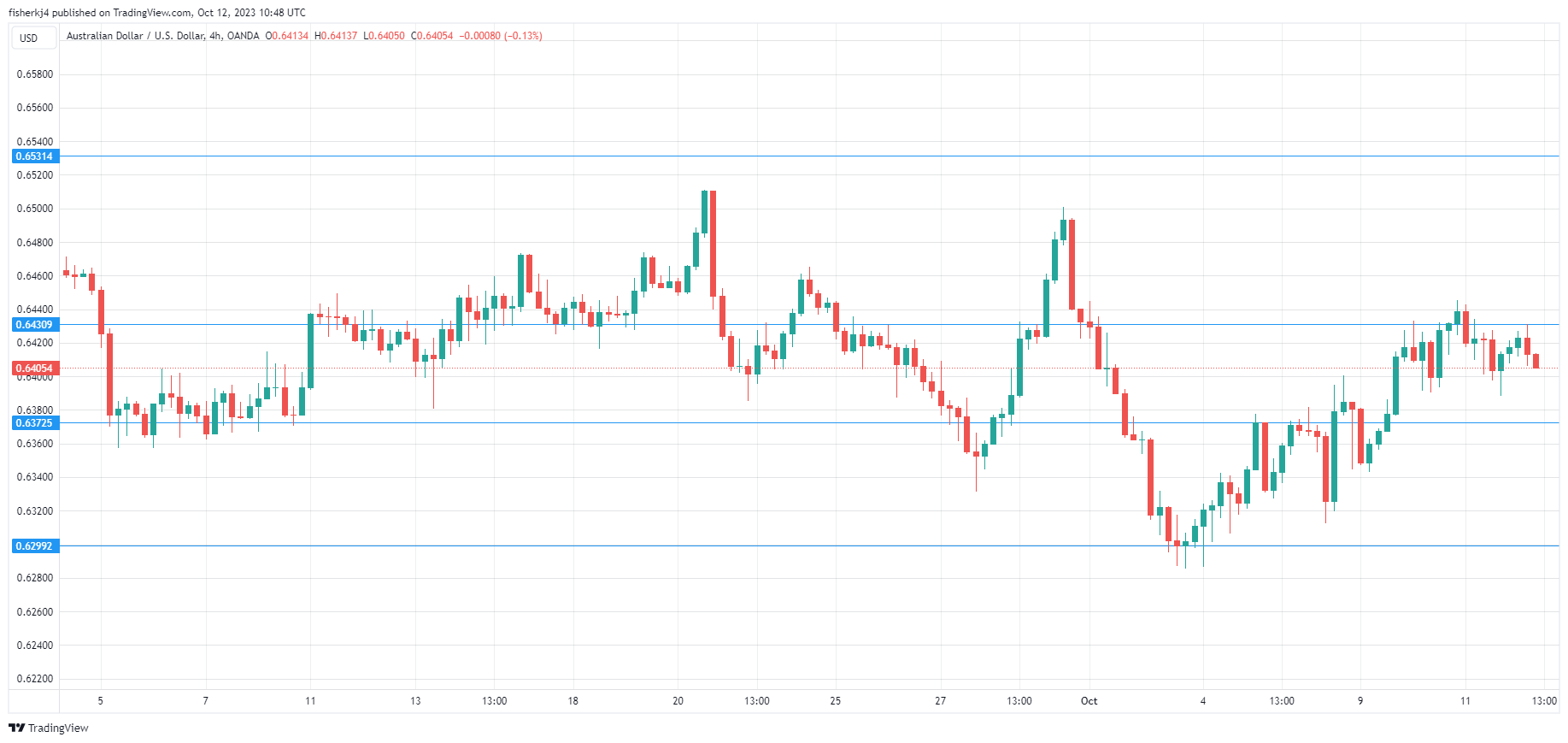- US CPI expected to ease
- US PPI surprised to the upside
The Australian dollar is showing limited movement on Thursday. AUD/USD is trading at 0.6410 in the European session, down 0.05%.
All eyes are on US consumer inflation, which will be released later today. On Wednesday, the producer price index (PPI) was hotter than expected. PPI rose 0.3% m/m in September, above the 0.2% gain in August which was also the consensus estimate. On an annual basis, PPI rose to 2.2%, up from the upwardly revised 2.0% in August and well above the consensus estimate of 1.6%.
Will CPI also surprise on the upside? The Fed certainly hopes not, as it needs inflation to continue falling in order to continue holding rates. CPI is expected to nudge lower to 3.6% y/y in September, compared to 3.7% in August. On a monthly basis, CPI is expected to drop from 0.6% to 0.3%.
The Fed will be keeping a close eye on core CPI, which excludes energy and food prices. CPI is expected to dip to 4.1% y/y in September, following a 4.3% gain in August. On a monthly basis, the core rate is expected to remain unchanged at 0.3%. If the inflation report produces an unexpected reading, we could see the US dollar show some volatility.
The Federal Reserve minutes of the September meeting were released on Wednesday. FOMC members voted to hold rates at the meeting, but there was some division in the ranks. The majority of members favored a rate hike “at a future meeting”, with the minority saying that no further hikes were necessary. However, there was unanimity that rate policy should remain restrictive until it was clear that inflation was “moving down sustainably” towards the 2% target.
The minutes may have become stale, as a lot has changed since September, in particular the sharp rise in US Treasury yields, with 10-year yields hitting a 16-year high. Fed members have voiced a dovish message, noting that higher yields have raised borrowing costs. This could put the brakes on growth and curb inflation, doing the Fed’s work without it having to hike rates.
The spike in US Treasuries and the Fed’s new dovish tone have resulted in the future markets slashing their expectations for a rate hike before the end of the year. The odds in mid-September for a rate hike stood at 41% but have fallen to 26% currently, according to the CME FedWatch Tool.
AUD/USD Technical
- 0.6372 and 0.6299 are providing support
- There is resistance at 0.6430 and 0.6531
